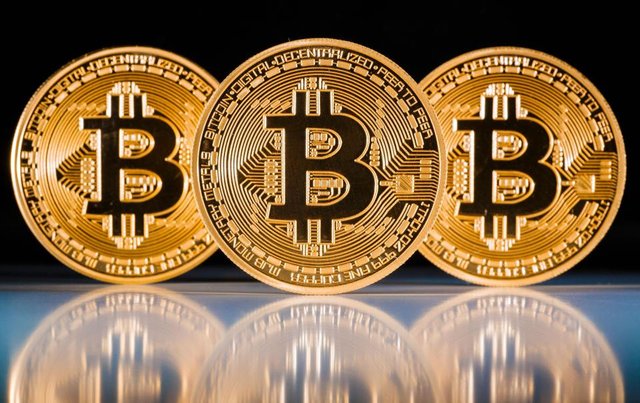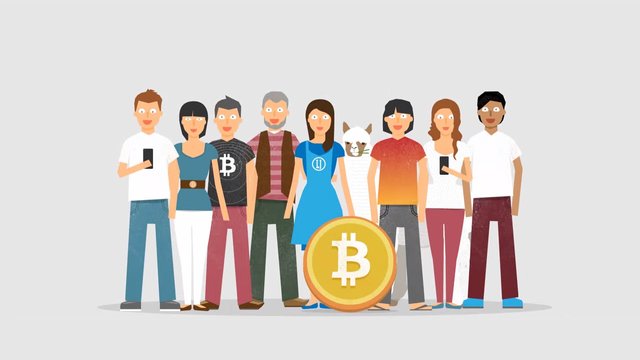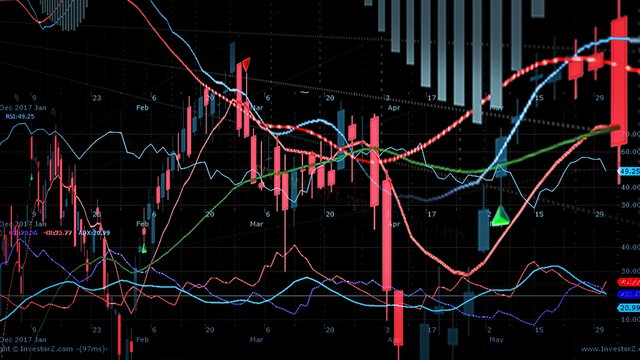TOP 10 MOST COMMONLY GOOGLED QUESTIONS ABOUT BITCOIN --- ANSWERED!
The whole world seems to be talking about Bitcoin these days, but not everyone knows exactly what it is or how it works. So MONEY went to Google to get the most popular Bitcoin-related queries, and then Investopedia put together a list of answers to your top 10 questions.
(By ADAM HAYES / INVESTOPEDIA January 24, 2018)
- What is Bitcoin?
Launched in 2009 by an anonymous creator who goes by the pseudonym Satoshi Nakamoto, Bitcoin is the most well-known and most widely adopted “cryptocurrency.”
Based on a technology known as blockchain, Bitcoin exists as ledger entries across a distributed, decentralized computer network with no central authority or government overseeing it. By employing blockchain technology in combination with sophisticated encryption, Bitcoin offers a way to securely send digital money in a truly peer-to-peer fashion.
How do you buy Bitcoin?
Bitcoin can be purchased using traditional currencies such as dollars, but it can also can be purchased using other digital currencies such as Ethereum or Litecoin. There are a several online exchanges where you can buy and sell Bitcoin.Where can you buy Bitcoin?
The most common place to buy Bitcoin is through online exchanges. However, the trustworthiness and security of these exchanges can vary, and there are several high-profile hacks of Bitcoin exchanges in the past.
Look for an exchange that is regulated. In the United States, Coinbase and its subsidiary GDAX are considered trustworthy options.
- How to invest in Bitcoin?
Many buyers of Bitcoin and other cryptocurrencies believe that these technologies can revolutionize the financial world and disrupt the status quo.
They see bitcoin as an asset similar to gold, and they follow a long-term buy-and-hold strategy. (True believers call this “HODL” – originally a typo for ‘hold’ on a discussion forum, users now take it to mean “hold on for dear life.”) If you want to HODL, you’ll want to transfer your holdings to a Bitcoin wallet where you can keep them safe until you’re ready to use them or sell.
While some established online brokers such as Vanguard have no plans to offer Bitcoin funds, other well-regarded brokerages, including TD Ameritrade and E*Trade, offer investors the opportunity to buy futures contracts on Bitcoin for those who want to invest without owning the underlying asset.
- How does Bitcoin work?
Bitcoin works by recording every transaction that takes place on its network in all nodes of the network. This redundancy ensures that a bad actor cannot change or delete a transaction by undermining a single point of failure.
Each user of the Bitcoin system has a public-private encrypted key pair, and use their public keys as their account number or address. For instance, if Alice sends Bob one Bitcoin, she will send it to Bob’s public key address. Transactions themselves are validated and added to the blockchain ledger through a process called “mining,” which also is the method by which new Bitcoins are introduced to the system.
- What is Bitcoin mining?
Bitcoin mining is the mechanism by which new Bitcoins are brought into existence. At the same time, it is the way that transactions are validated and confirmed.
Mining involves solving a computationally difficult cryptographic puzzle, similar in some ways to an enormous game of Keno where the “winner” is determined by chance according to probability alone. The participant in the mining network who is able to solve this puzzle first claims as their reward newly minted Bitcoins (currently 12.5 BTC per block) as well as all the accumulated transaction fees associated with that block.
- How do you mine for Bitcoin?
Bitcoin is an open system, so anybody can join the network as a miner.
Mining isn’t easy though; miners need specific hardware designed to solve the cryptographic mining puzzle using dedicated microchips (known as ASICs) or by rigging together a series of graphics processor units, or GPUs (which have been found to solve cryptocurrency mining puzzles better than traditional CPUs).
Once you have your hardware, you’ll probably want to join a mining pool that aggregates individual mining efforts from all over the world and concentrates that effort. If the pool solves the mining puzzle, each member of the pool receives a pro-rated amount that corresponds to how much mining power they contributed.
- How many Bitcoins are there?
One unique feature of Bitcoin is that there can only be 21 million ever mined. So far, approximately 17 million have been produced — almost 80% of the total supply.
In addition, the rate of new Bitcoin creation is fixed at an average of one block (currently 12.5 BTC) every ten minutes. This “block reward” also reduces over time, so that every four years or so the number of Bitcoins found in a block is cut in half. When Bitcoin launched there were 50 BTC per block and some time in the year 2020, that amount will again be reduced to 6.25 BTC per block.
- How much is a Bitcoin worth?
As of January 23, 2018 one bitcoin was worth approximately $11,000. As recently as December 2017, the price of a Bitcoin rose to nearly $20,000 amid increasing speculative interest and global demand.
To put this in perspective, a Bitcoin was worth less than $1 from 2009-2011, less than $100 until 2013, and less than $1,000 until 2017 (excluding a short price spike to $1,200 in late 2013). There are lots of questions around what Bitcoin’s price should be, with some claiming it has zero intrinsic value and others claiming that it could be worth as much as $100,000 per bitcoin or more.
- What is Bitcoin Cash?
Bitcoin Cash is the result of a “hard fork,” which is a splitting of the blockchain into two distinct new ledgers, but both preserving whatever came before it.
One of the new chains maintains the original protocol and code while the second forks off in order to implement new code or add additional features and functionality.
Bitcoin Cash forked off in order to increase the number of transactions that can fit inside of a block in an effort to reduce transaction fees and confirmation times, but this has created something of an ideological split in the Bitcoin community among those who claim that one versus the other embodies the “original spirit” of the Bitcoin project.
http://time.com/money/5115158/the-10-most-commonly-googled-questions-about-bitcoin-answered/
More updates coming from yours truly!
Please stay tuned! And don't forget to upvote | Resteem | and comment your thoughts.
Thank you!
More post from https://steemit.com/@theloneword






